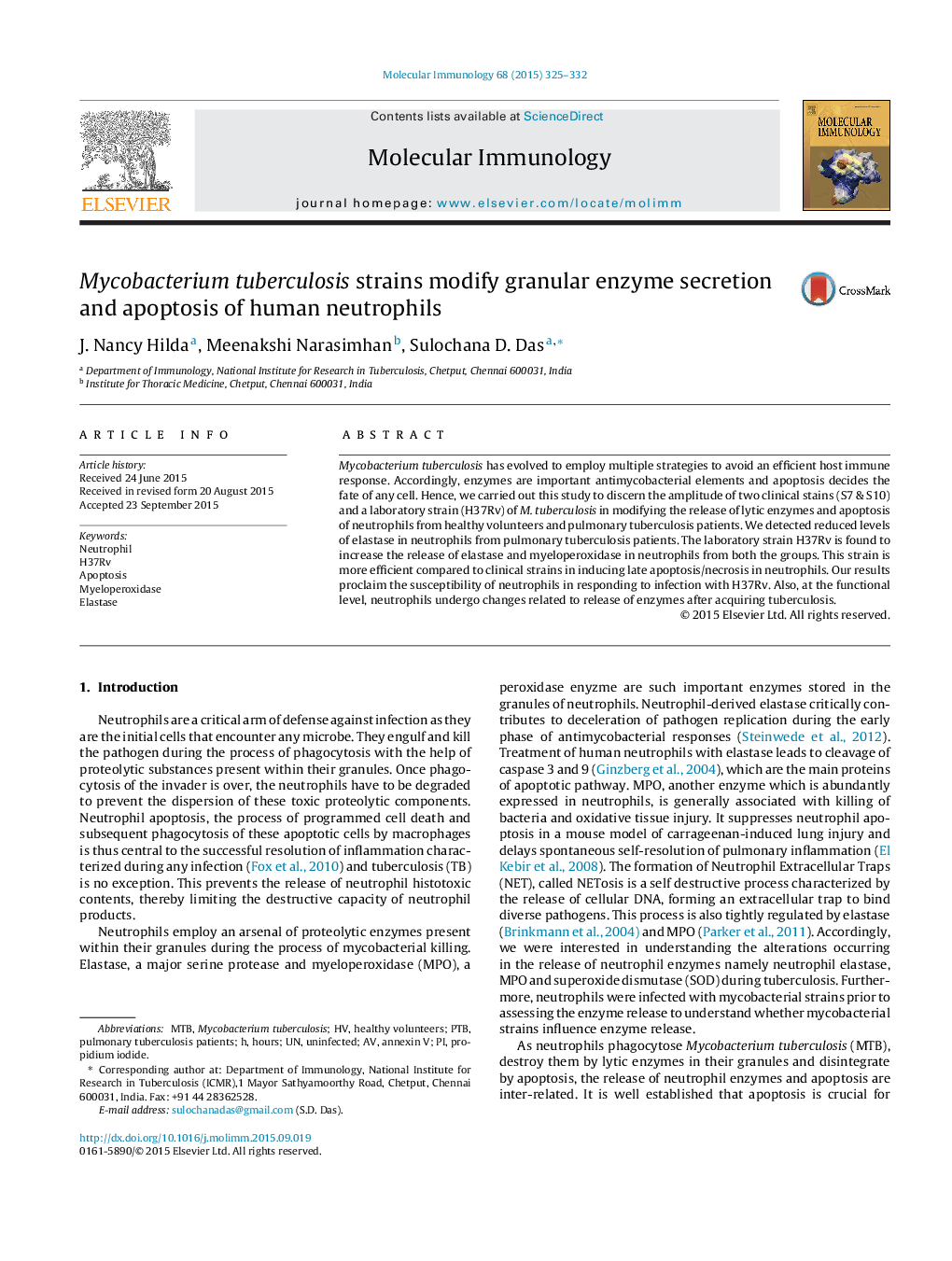| Article ID | Journal | Published Year | Pages | File Type |
|---|---|---|---|---|
| 5916447 | Molecular Immunology | 2015 | 8 Pages |
â¢Neutrophils undergo modulation in granular enzyme secretion upon infection with MTB strains.â¢Neutrophils secrete higher levels of elastase after acquiring tuberculosis.â¢In tuberculosis patients, MTB strains reduce the capacity of neutrophils to secrete SOD.â¢H37Rv is more effective than clinical strains in modulating neutrophil apoptosis.
Mycobacterium tuberculosis has evolved to employ multiple strategies to avoid an efficient host immune response. Accordingly, enzymes are important antimycobacterial elements and apoptosis decides the fate of any cell. Hence, we carried out this study to discern the amplitude of two clinical stains (S7 & S10) and a laboratory strain (H37Rv) of M. tuberculosis in modifying the release of lytic enzymes and apoptosis of neutrophils from healthy volunteers and pulmonary tuberculosis patients. We detected reduced levels of elastase in neutrophils from pulmonary tuberculosis patients. The laboratory strain H37Rv is found to increase the release of elastase and myeloperoxidase in neutrophils from both the groups. This strain is more efficient compared to clinical strains in inducing late apoptosis/necrosis in neutrophils. Our results proclaim the susceptibility of neutrophils in responding to infection with H37Rv. Also, at the functional level, neutrophils undergo changes related to release of enzymes after acquiring tuberculosis.
